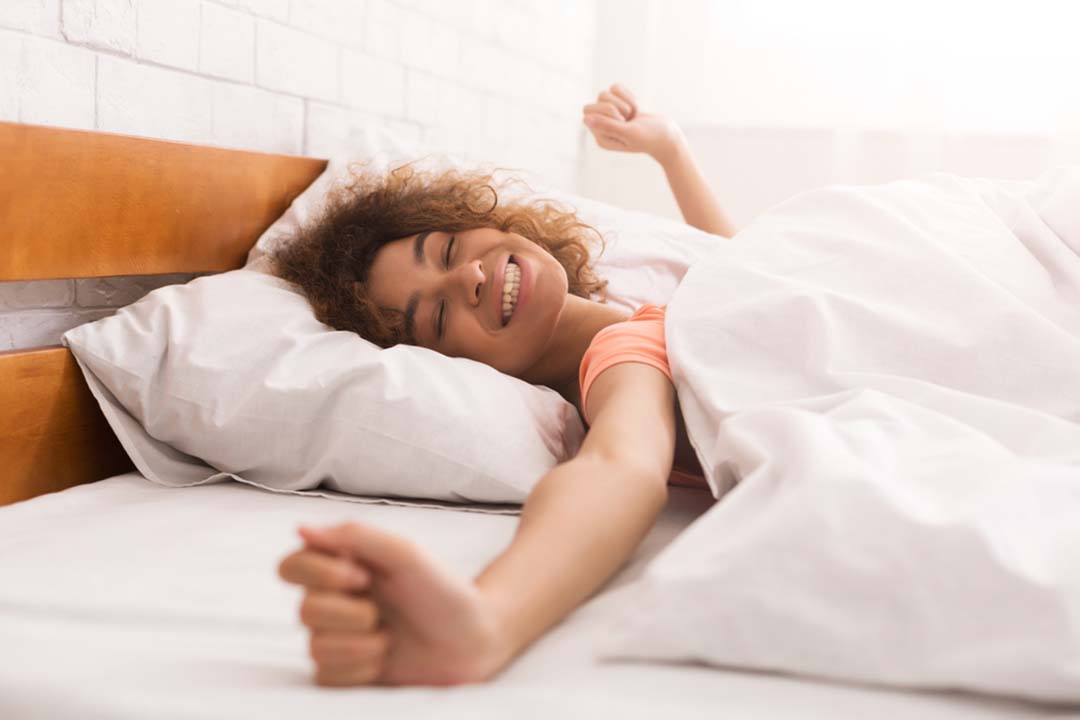Blog, Healthy Living
How Getting Better Sleep Can Help You Hit Your New Year’s Workout Goals
It’s estimated that more than 74 percent of American adults made a New Years’ resolution this year, and between 43 and 47 percent of resolutions are health-related. That’s unsurprising because having a healthier lifestyle may prevent illness and injury and may lead to a longer life. One critical aspect of a healthier lifestyle is regular physical activity. According to the Mayo Clinic, regular exercise helps combat health conditions and diabetes, control weight, improve mood, and promotes better sleep.
But the length and quality of your sleep have a significant impact on your New Year’s resolution, as it impacts muscle recovery, ability and performance, risk of injury and illness, and your ability to learn and make decisions. Fortunately, there are many ways you may be able to get better sleep, including relaxation techniques, avoiding naps, and with the help of melatonin gummies.
5 Ways Sleep Impacts Performance
If you’re not getting enough sleep, your workout performance may be impacted. While sleep gummies and relaxation techniques may help you get a more restful sleep, it’s essential to know how sleep affects your performance. Here are five ways that sleep impacts your performance:
1. Muscle Recovery
One of the most prominent ways sleep impacts your performance is muscle recovery. Your body releases growth hormones while you sleep, which begins repairing muscle damage caused by injury and exercise. This repair process is vital and affects your short-term and long-term workout goals. Additionally, research has shown that sleep deprivation may decrease muscle strength the following day.
2. Risk of Injury
Sleep deprivation may increase the risk of injury, which can be a significant setback to your New Years’ resolution. According to research by the National Library of Medicine, a study of adolescent athletes suggested that athletes who slept less than eight hours each night were 1.7 times more likely to sustain an injury than their peers who got adequate sleep.
3. Ability and Performance
Getting better sleep each night, whether by better sleeping habits or helpful tools like melatonin gummies, may impact your ability and performance. A study on male athletes has suggested that sleep-deprived athletes had reduced sprint times. Research of tennis players indicated that players who didn’t get enough sleep had decreased serving accuracy.
4. Risk of Illness
If you’ve made New Years’ workout goals, it’s essential to know that lack of sleep may increase your risk of illness and chronic diseases. Research has shown a connection between sleep and illness, from the common cold to severe conditions.
5. Difficulty in Judgement and Decision Making
Another substantial potential consequence of lack of sleep is difficulty making decisions and having good judgment. Research has linked regular sleep inadequacy to decision-making impairment, increased likelihood to take risks, and general judgment. Additionally, fatigue from sleep deprivation may lead to brain fog, trouble concentrating, and memory problems.
Post Workout Recovery Nutrition and Sleep
Getting enough sleep can help you hit your New Years’ workout goals, but it’s not the only post-workout recovery step you should take. Post-workout actions like stretching and eating the proper post-workout meal. The post-workout recovery steps that you should commit to include:
- Stretch After Your Workout: Stretching may provide many health benefits including improved performance, decreased risk of injury, better range of motion, and increased blood flow to muscles. While stretching may offer general benefits, it may be even more important post-workout. When stretching, focus on each major muscle group, such as your lower back, neck, shoulders, calves, thighs, and hips.
- Eating the Right Post-Workout Meals: Your body’s preferred fuel, glycogen, can be used up while you’re working out. Unless replenished, this may lead to the breakdown of proteins within your muscles, so it’s important to consume a post-workout meal after intense exercise. A healthy, post-workout meal should include the right mix of protein, fat, and carbs.
- Get Adequate Sleep: There are many benefits to getting enough sleep every day, but the amount of sleep you need depends on your age group. Most adults need at least seven hours of sleep each night, but teen adolescents should get between eight and ten hours of sleep. Additionally, older adults may need more sleep because of potential difficulties falling and staying asleep. There are many ways that you may be able to get more rest, including by maintaining good sleeping habits, relaxation techniques, and sleep gummies.
The Bottom Line
Getting enough sleep each night is beneficial to your health, and sleep deprivation can impede your New Years’ resolution workout goals. When you don’t get enough sleep, you may experience reduced muscle recovery, a higher risk of illness and injury, and a reduced capacity, performance, and ability to make good decisions.
There are many ways to start getting more quality sleep each night. For example, you may be able to get a more restful sleep through the use of melatonin gummies, better sleep habits, and relaxation techniques before bed. Like any workout goal, consistency is key, and getting enough sleep is something you should strive for every day.

